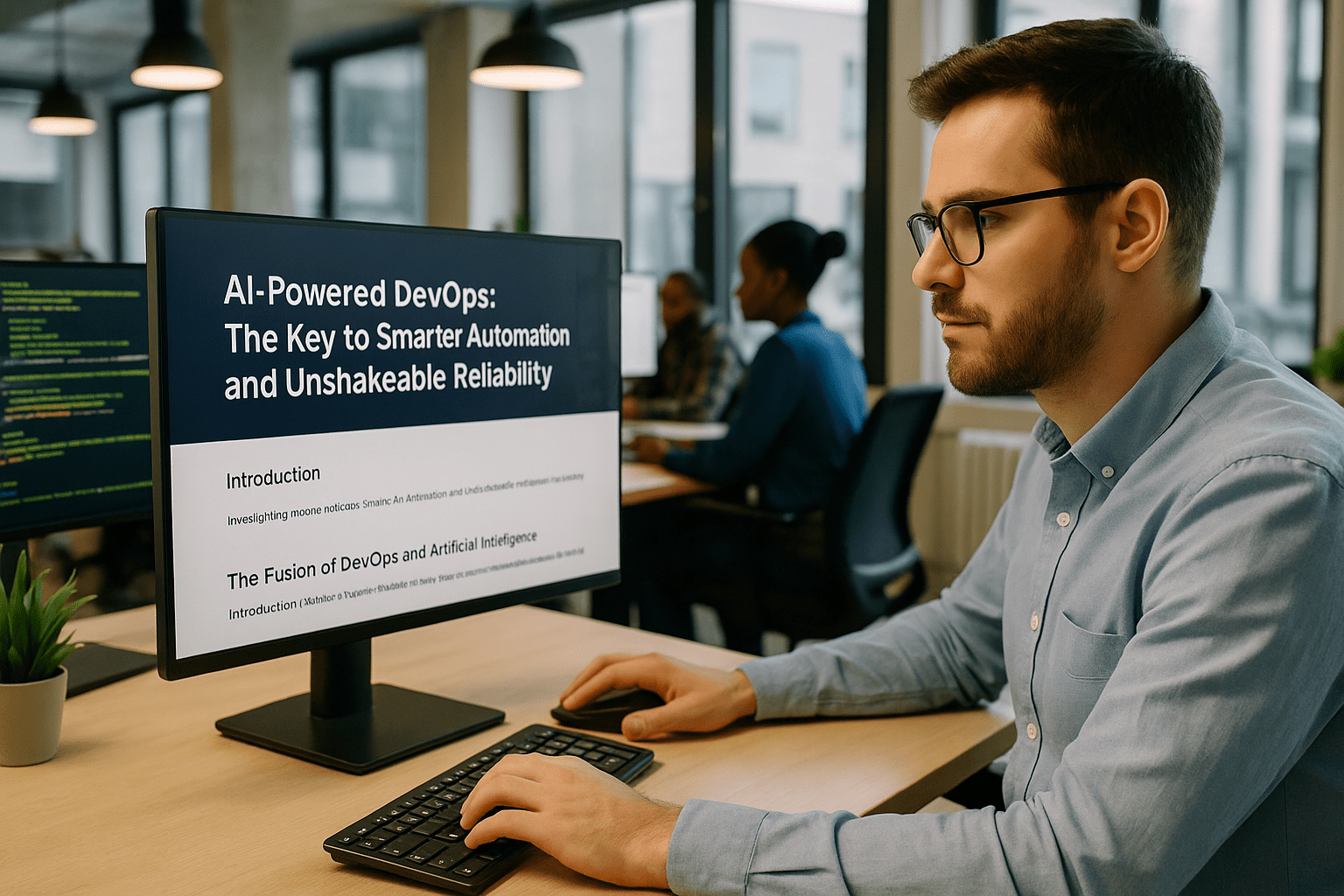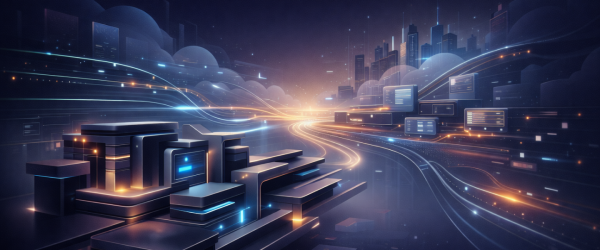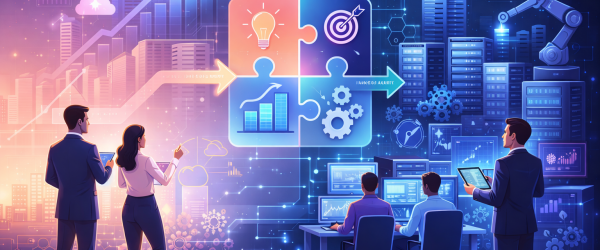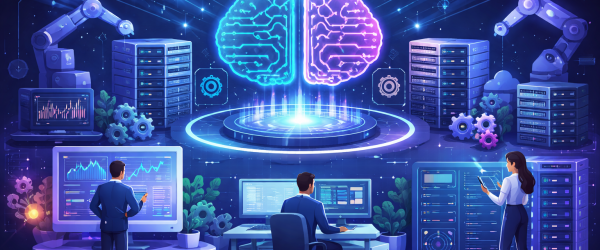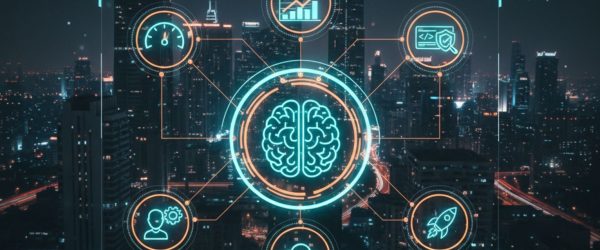Introduction
DevOps has been the game-changing methodology that bridged the gap between development and operations. By emphasizing collaboration, continuous delivery, and automation, it revolutionized the way software is built and maintained. But we’re now entering a new frontier—where DevOps doesn’t just operate faster, but thinks smarter. Welcome to the age of AI-powered DevOps.
This fusion isn’t just a buzzword combo. Artificial Intelligence is bringing real-time learning, self-healing capabilities, predictive insights, and unprecedented reliability into DevOps workflows. It’s like upgrading your reliable old pickup truck into a self-driving electric beast. Automation isn’t just faster anymore—it’s intelligent. And reliability? It’s becoming proactive instead of reactive.
The Fusion of DevOps and Artificial Intelligence
DevOps focuses on speed, iteration, and delivery. AI brings intelligence, adaptability, and prediction. When these two forces converge, what you get is a turbocharged pipeline that doesn’t just follow orders—it learns, adapts, and evolves.
AI in DevOps transforms continuous integration into continuous intelligence. It analyses logs, code changes, user feedback, and performance metrics in real time, drawing actionable insights and even making autonomous decisions. It’s no longer about scripting a task—it’s about teaching a machine to optimize that task over time.
The Role of AI in DevOps Automation
Imagine this: Instead of writing scripts for every repetitive task, you set up an AI model that learns your workflow patterns and executes tasks accordingly. It can handle everything from testing and deployment to rollback strategies and alerts. That’s the promise AI delivers.
No more staying up late debugging repetitive alerts or fixing the same recurring bug. AI in DevOps helps automate incident triage, prioritize tasks, suggest solutions, and even apply patches—sometimes before the team even notices an issue.
Smarter CI/CD Pipelines with AI
Continuous Integration and Continuous Deployment (CI/CD) are the backbone of DevOps, but they’re prone to inefficiencies. That’s where AI steps in like a pro detective with a crystal ball.
AI can analyze historical build data to predict failures before they happen. It can spot faulty code changes, recommend fixes, or reroute builds based on intelligent reasoning. In testing, AI creates smarter test cases that adapt based on code changes and past bugs. For deployments, it recommends optimal windows, avoiding peak loads or known blackout periods.
Proactive Monitoring and Incident Management
Think of traditional monitoring like a smoke alarm. It alerts when there’s already a fire. But AI-powered monitoring? It smells the smoke before the fire even starts.
AI tools like anomaly detection can monitor metrics 24/7 and raise red flags before a service crashes. These systems learn from historical behavior—traffic patterns, system usage, CPU spikes—and recognize when something’s off, even if it hasn’t failed yet. Some systems even auto-resolve these anomalies or escalate them with rich context, cutting mean time to resolution dramatically.
Intelligent Resource Allocation
Cloud infrastructure is flexible, but managing it manually is like playing 3D chess blindfolded. AI makes it easier by analyzing workload patterns and usage metrics to allocate resources dynamically.
It can predict when to scale up or down, what type of instance fits best, and how to save costs while maintaining performance. Basically, it’s your infrastructure autopilot—balancing efficiency and economics with no human micromanagement needed.
How AI Enhances Reliability in DevOps
DevOps thrives on consistency and uptime. AI ensures both. With predictive maintenance and failure forecasting, AI can flag deteriorating systems, warn about possible outages, and even suggest preventive actions before an incident occurs.
AI enhances system reliability not just by reacting faster, but by anticipating failures and making the infrastructure resilient through continuous learning.
Learning from Past Incidents
Traditional root cause analysis can be time-consuming and biased. AI takes a data-centric approach. It can comb through millions of logs, traces, and metrics to pinpoint the actual reason behind a failure.
Some AI-powered systems can even simulate alternative scenarios to suggest what could have prevented the issue, giving DevOps engineers the blueprint to build self-healing systems that get smarter with each incident.
Security and Compliance in AI-Driven DevOps
Security isn’t a checklist anymore—it’s a real-time battlefield. AI helps you win it.
With continuous monitoring, AI can detect threats and intrusions faster than human teams. From analyzing login patterns to scanning new code commits for vulnerabilities, AI systems can catch anomalies, auto-patch known issues, and raise alerts before your application becomes a headline.
It also simplifies compliance. Whether it’s GDPR or HIPAA, AI can monitor compliance requirements, audit logs, and flag violations in real time.
Benefits of AI in DevOps for Teams and Businesses
Let’s face it—manual work slows everyone down. AI takes over the repetitive stuff, freeing teams to focus on innovation.
Developers don’t waste hours debugging trivial issues. Ops teams don’t have to keep an eye on dashboards 24/7. This reduces burnout and improves productivity. Businesses, on the other hand, benefit from faster releases, higher stability, and happier customers. It’s a win-win-win situation.
Challenges of Integrating AI in DevOps
No rose is without thorns, and AI in DevOps isn’t a magic bullet. Integrating it comes with hurdles. Teams need to learn new tools, trust machine-made decisions, and ensure data quality.
Bad data leads to bad predictions. If your logs are noisy, or your metrics misleading, your AI tools can do more harm than good. Then there’s model accuracy—getting it wrong might cause failed deployments or missed alerts.
Avoiding the Pitfalls of Over-Automation
One common mistake? Automating too much, too soon. AI can handle a lot, but it’s not a replacement for human judgment.
It’s crucial to keep humans in the loop, especially during the early stages of AI integration. The best systems use AI as a co-pilot—not the pilot—until trust is fully earned.
Real-World Use Cases of AI in DevOps
Top tech giants are already living this future. Netflix uses AI for chaos engineering—introducing failures intentionally and learning from system responses. Google’s Site Reliability Engineers (SREs) rely on ML to scale incident responses and auto-resolve infrastructure issues.
Startups too are joining the fray. From AI-led log analysis to chatbot-based incident response tools, the use cases are multiplying, proving AI isn’t just for the elite.
Future Trends in AI and DevOps
The next wave? Autonomous DevOps.
Think systems that set up pipelines, test, deploy, monitor, and scale themselves with minimal human intervention. With GenAI in the mix, we’ll soon see AI writing scripts, suggesting code changes, and building deployment plans—just based on a product brief or a Jira ticket.
The future’s not coming. It’s already deploying.
Conclusion
AI is revolutionizing DevOps the same way DevOps revolutionized software delivery. It brings a new layer of intelligence, enabling systems to anticipate problems, optimize themselves, and respond autonomously. From building better CI/CD pipelines to improving uptime and security, AI is helping teams focus less on firefighting and more on innovation.
Yes, there are challenges. But the benefits—speed, reliability, efficiency, and scalability—are simply too massive to ignore. The teams that adopt AI in DevOps today will be the ones leading the tech revolutions of tomorrow.
FAQs
1. What’s the difference between traditional automation and AI in DevOps?
Traditional automation follows predefined scripts. AI in DevOps learns and adapts to environments, making decisions based on data, not just rules.
2. Is AI replacing DevOps engineers?
Not at all. AI enhances DevOps workflows by handling repetitive tasks, allowing engineers to focus on strategy, creativity, and innovation.
3. Can small companies implement AI in DevOps?
Absolutely. With cloud-based AI tools and open-source frameworks, even startups can benefit from smarter automation and monitoring.
4. How does AI improve system reliability?
AI predicts failures, analyzes incidents, and creates self-healing systems that prevent outages and reduce downtime.
5. What are the top AI tools used in DevOps today?
Popular tools include Dynatrace, Moogsoft, DataDog AIOps, Splunk, and GitHub Copilot for intelligent coding.

